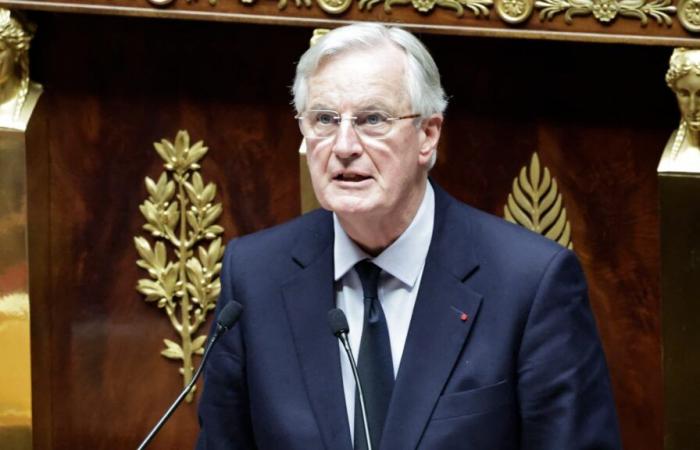The vote on a motion of censure to overthrow Michel Barnier’s government could have significant budgetary, financial and economic consequences for France.
What if the 2025 budget presented by Michel Barnier’s government was ultimately not implemented? Monday afternoon, the Prime Minister decided to hold his government accountable by using article 49.3 of the Constitution to adopt the Social Security financing bill without going through a vote. The tenant of Matignon is thus exposed to a motion of censure which has a strong chance of succeeding due to the opposition of the National Rally and a large part of the New Popular Front in the hemicycle.
On the political level, the consequences of such a scenario would be significant since it would notably lead to the formation of a new government. But on the economic level, the repercussions would be just as considerable in the budgetary, financial and economic areas.
Nearly 400,000 new households taxed
The budget proposed by the government aimed to reduce the deficit from 6.1% in 2024 to 5% in 2025 thanks to an effort on public revenue and expenditure to the tune of 60 billion euros. But this trajectory would be completely called into question in the event of censorship which could actually increase France’s deficit by up to 6.4% of GDP. And for good reason, the fall of the government will encourage Parliament to adopt a “special law” as provided for in article 47 of the Constitution.
Concretely, this “special law” would result in a renewal of the 2024 budget. On the one hand, the credits allocated to ministries would be frozen, which would allow savings of 15 to 18 billion. On the other hand, the income tax scale would not be indexed to inflation and would include 380,000 new households while 17 million would pay more: these changes would generate more than 3 billion in revenue. But at the same time, the State would record a shortfall of around 3 billion euros due to the revaluation of pensions on January 1 which is included in the Social Security code and does not depend on the government.
Losers… but also winners
Guest of Télématin on Tuesday, the Minister of Economy and Finance Antoine Armand estimated that the situation would not benefit any French person and would only create losers. This would indeed be the case for farmers who are still waiting for the materialization of the measures promised by the governments of Gabriel Attal and Michel Barnier such as the renunciation of the planned increase in the tax on non-road diesel (GNR) which appears in the 2025 budget Households wishing to access property will not be able to benefit from the expansion of the zero-interest loan provided for in the government’s PLF.
Within the scope of ministries, the renewal of 2024 credits would have harmful repercussions on the military programming law, for example. The 2025 finance bill plans to increase the Defense mission’s credits to 50.5 billion euros, or 3.3 billion more than the previous year. According to Minister Sébastien Lecornu, the order for the future aircraft carrier planned for next year could be postponed if the motion of censure is adopted.
Guest of BFMTV, his Transport counterpart François Durovray also estimated that his major “Cars express” plan would be called into question. Ditto for the financing of new police stations or the deployment of additional law enforcement according to the Minister of the Interior Bruno Retailleau who was on the set of the TF1 morning show.
On the other hand, certain categories of individuals, businesses or sectors of activity could be relieved by a censorship scenario. This is the case for the highest incomes targeted by a minimum tax rate or even companies whose turnover exceeds one billion euros. This is also the case for the air sector and maritime freight for which an increase in taxation was planned, in the same way as online games or pharmaceutical laboratories.
Increase in the cost of financing French debt
However, the prospect of censorship worries well beyond its budgetary consequences. On the European level, France’s commitments to restore its public finances would be undermined. However, their non-compliance could be punished with fines of around one and a half billion euros every six months.
“It is not the government and the budget that we are censoring, but the country that we are putting in danger,” insisted the boss of Bercy on the France 2 set Tuesday morning.
According to the OFCE, increased political uncertainty would slow down business investment and encourage households to continue saving rather than consuming, so that growth could only amount to 0.5 % next year.
The cost of financing the French debt could continue to rise, by around 1% according to the Minister of Budget and Public Accounts Laurent Saint-Martin. That is an additional cost of 3 and a half billion euros from 2025, 20 billion euros within five years and even 30 billion euros at the start of the next decade, which would be equivalent to the annual investments necessary for the transition ecological of the country. Ultimately, France could experience the same fate as Italy and be forced to generate primary surpluses to pay its debt.






